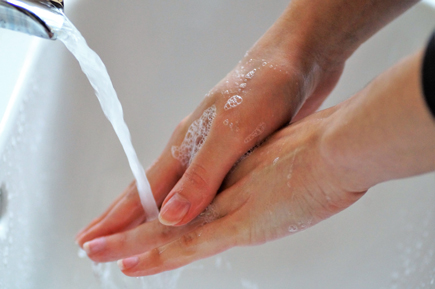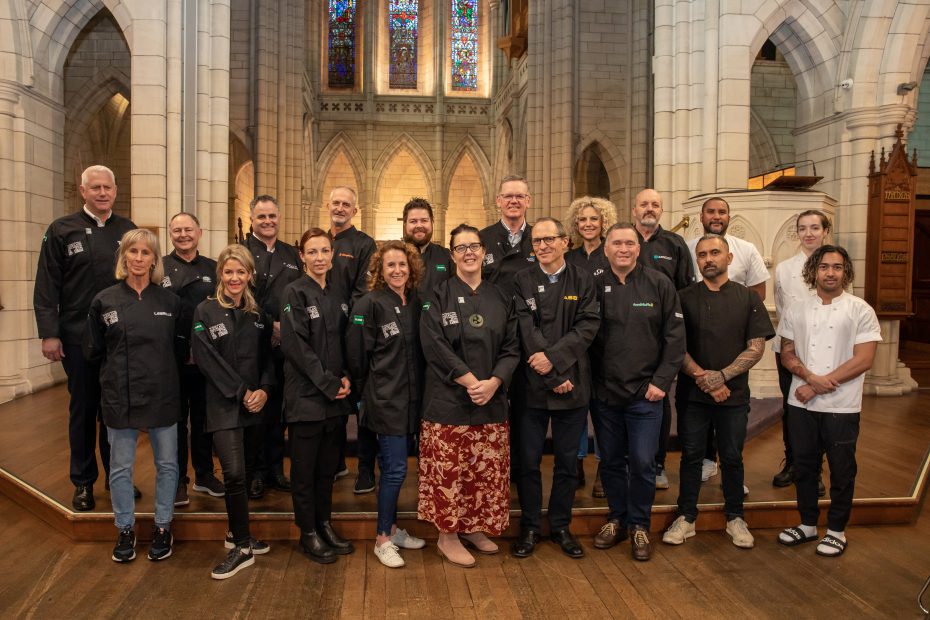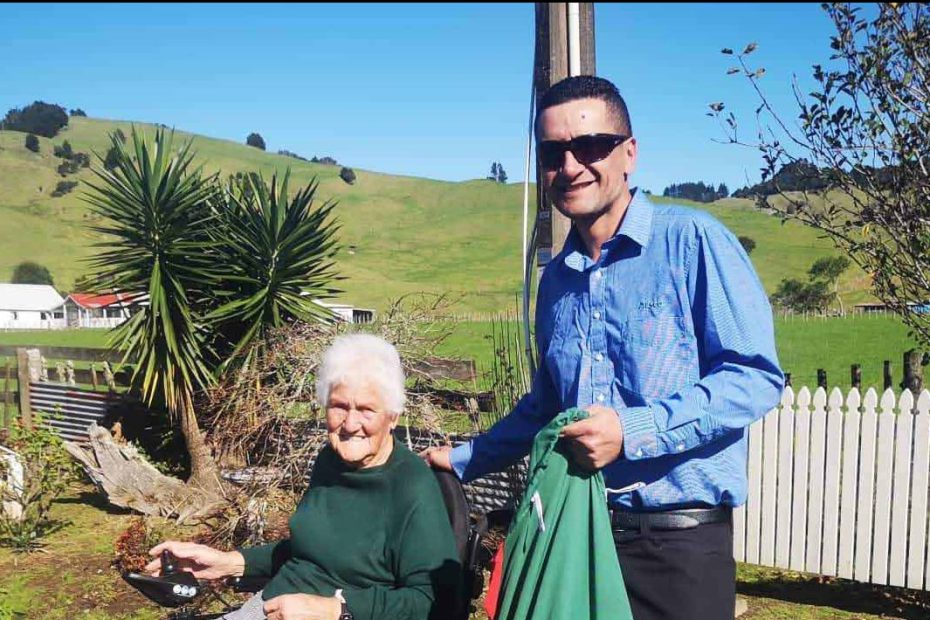Did you know that washing hands with soap and water can reduce diarrhoea associated deaths by 50%?
In short, a million people can be saved in a year, by the routine action of handwashing.
Hands are one of the main pathways of germ transmissions. This makes handwashing a critical practice in restaurants.
Handwashing education reduces:
- The number of diarrhoea infections by 23-40%.
- Diarrheal illness in people with weakened immune systems by 58%.
- Respiratory illness like colds by 16-21%.
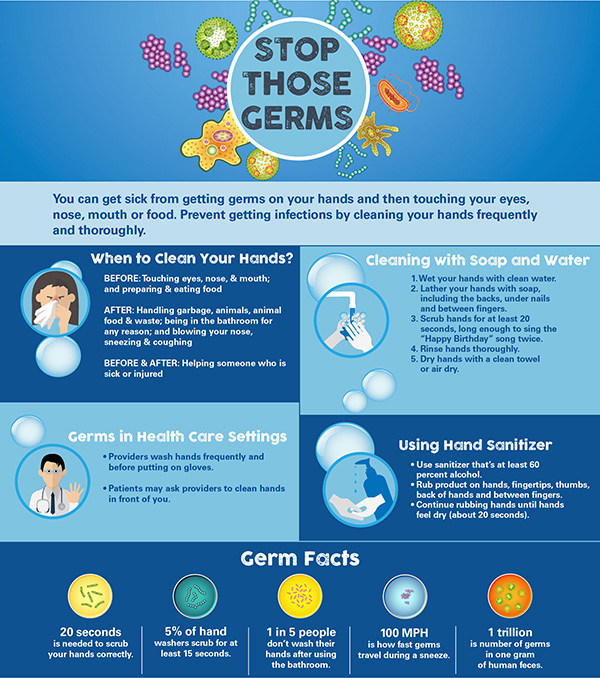
Here are 5 crucial tips on why you should promote high hand hygiene standards in your restaurant.
How to Properly Wash Hands
A high number of people understand the importance of handwashing, yet not all practice proper hand hygiene.
Most people wash the palm of their hands and forget key areas including nails which hide germs.
Missing out on the critical steps will not help. It is also equally important to dry your hands after handwashing. Damp hands are 1,000 times more likely to spread bacteria compared to a pair of dry hands.
Handwashing is an easy process that will help keep germs at bay.
In restaurants, handwashing is key, particularly in the kitchen where harmful bacteria lurk.
Actionable Steps for Handwashing
- Wet your hands with clean running water. Turn off the water and properly apply soap.
- Lather your hands by rubbing the soap onto your hands.
- Scrub your hands for at least 20 seconds.
- Rinse your hands well under clean, running water.
- Use a clean towel or an air dryer to dry your hands.
Important Supplies Needed for Handwashing
Customers want to know that they are dining in a restaurant with high hygiene standards.
To prove yourself in the restaurant business, provide important supplies needed for handwashing. These include:
Soap
Soap is a cleansing and emulsifying agent made by treating a fat with an alkali. Handwashing with soap is critical as it helps in the removal of germs from your hands.
Using soap with water is more effective than using water alone. The surfactants in soap help in lifting microbes form the hands. The lathering abilities of soap also help in making it easier for you to scrub your hands.
Water
Clean running water should be used for handwashing. Use of stagnant water is dangerous as the water could easily lead to recontamination.
Scrubbers
Scrubbers are particularly useful in removing dirt from the fingernails when it comes to handwashing.
Sanitisers
A Sanitiser is a liquid, gel or foam used to decrease infectious agents on the hands.
Using a sanitiser is not as effective as washing your hands with soap and water. Sanitisers should only be used when there is no soap and water.
When to Wash Your Hands
Proper handwashing is a vital food safety step.
Restaurant employees and particularly food handlers should wash their hands before handling food.
The Food Safety Standards stipulate that food handlers are to wash their hands:
- Before handling ready-to-eat food and after handling raw food.
- After touching the open parts of your body including nose, ears and mouth.
- After using toilet facilities.
- After handling or caring for any animals.
- After sneezing, coughing, using a handkerchief, smoking, eating or drinking.
- After handling soiled equipment or utensils.
- During food preparation to avoid cross-contamination.
- Before wearing gloves to work with food.
- After any activity that contaminates the hands.
Germs That Spread With Your Hands
Many diseases spread from dirty hands with millions of germs passing through them in a day. It is therefore important that we keep our hands clean and germ-free.
Germs get onto your hands after you use the toilet or handle raw meats which have germs.
Additionally, one can also get germs through touching contaminated objects.
Germs that can spread through your hands include:
- Salmonella
- Ecoli
- Norovirus
- Adenovirus
- Coxsackievirus
- Hepatitis A
- Shigella
4 Steps to Encourage Hand Hygiene in Your Restaurant
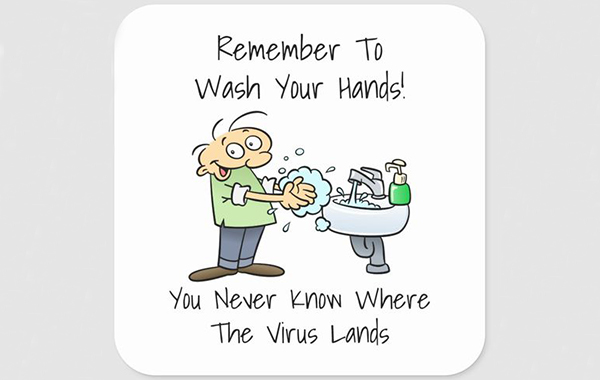
Actionable steps include:
- Installing handwashing stations at key points and stocking them with necessary supplies.
- Integrating handwashing in training to orient new employees on the importance of handwashing.
- Reinforcing proper food handling by training on best practices like wearing gloves.
- Putting up proper signage in common languages on the importance of handwashing.
4 Common Handwashing Myths Debunked
Handwashing may seem easy and obvious. However, a rather harsh truth is that many people do not know how to wash their hands properly. Indeed there are some handwashing misconceptions often peddled as the truth.
To separate misconceptions from the truth, here are 4 common handwashing myths that you might have heard of debunked.
Myth 1: Hand sanitiser is as effective as soap and water.
Good hand sanitisers contain at least 60% alcohol. They are a great option to use when water and soap are not available but they are not as effective.
In truth, all sanitisers do not eliminate all types of germs. This includes norovirus, a highly contagious disease which causes diarrhoea and vomiting.
Myth 2: Handwashing with warm water is more effective than with cold water.
This notion is wrong. Indeed hot water can irritate your skin making you more vulnerable to infections.
Myth 3: So long as you’re using soap, it won’t matter how long you wash your hands.
The World Health Organisation has recommended a specific length of time for handwashing. Singing the birthday song twice is long enough when handwashing with soap.
Myth 4: Hot air dryers are more effective than paper towels.
Both methods of drying hands are effective. The most important thing is to dry your hands completely as damp hands can spread germs.
Encourage Hand Hygiene with Alsco New Zealand
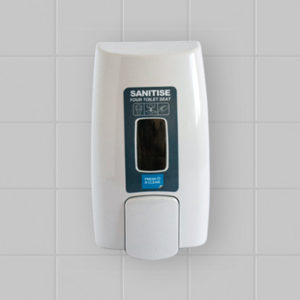
Hand washing is an important step in keeping your customers and communities healthy.
It prevents illness-causing germs from spreading through our hands.
Useful Tips:
- Wash your hands with soap and running water.
- Wash your hands during key times.
- Only use hand sanitiser when water and soap are not available.
- Always dry your hands after handwashing.
Clean hands are your first line of defence in protecting your business.
If you are wondering where to start, worry no more as we at Alsco New Zealand have got you covered.
We provide you with top of the range handcare and hand drying products for your restaurant.
The beauty of it is our products are affordable and tailored to meet all your business needs. Contact us today.
